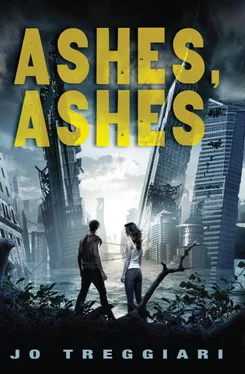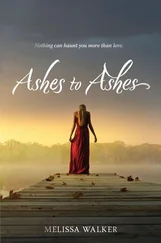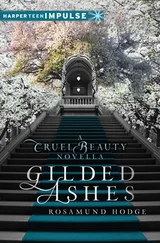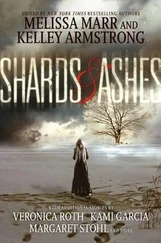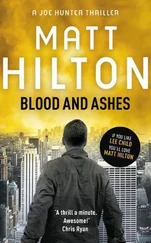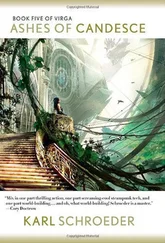She’d picked up her folder and stumbled backward to the gurney, spilling pages covered in weird symbols, rows of numbers and decimal points, percentages and charts. Too much information for someone who had suffered many scraped knees and cuts and broken bones but had never contracted anything worse than a head cold. One thing you could say about Lucy Holloway was that she had near perfect attendance. She wasn’t able to make heads or tails of the science stuff, and her bladder had finally demanded that she do something about it. She peed in a blue plastic cup and then dropped it in the biohazard receptacle, trying not to tip it over. The can was filled with used syringes and marked with a yellow and black skull.
And then Mrs. Reynolds had come back; the clicking of the lock opening gave Lucy just enough time to stuff her folder back into the drawer and vault onto the examining table. The nurse had jotted down a few notes and then made the calls that brought a legion of white-coats in, their faces blank behind their masks, and the battery of testing had begun again, until finally her father had shown up. He’d seemed twelve feet tall standing in the doorway, swinging his briefcase like an axe, his face purple with rage. She had never seen him with his cuffs undone, his tie unknotted, his carefully combed hair bristling. Something stony in his face had stopped her from asking any questions when he’d dragged her out of the room. Afterward, there’d been no time. Lucy never went back to school. Missed final exams, never picked up her report card, and soon there had been no reason to think about school. She’d received her yearbook in the mail a month or so later, sent directly from the printer with a computer-generated mailing label affixed.
A few pages further and there Lucy was again, a shot of her hunched over her journal, her hair a tangled curtain drawn across her face, scribbling away furiously. All around her were people caught in the midst of laughing and talking, their hands a blur of motion, moving around her as if she weren’t there. And she kind of hadn’t been. In her mind she’d been traveling and thinking about the day she could escape, and she had written it all down in her journal. Even to herself, though, she had to admit she looked like a strange, dull girl. Lucy closed the book, thinking not for the first time that she should burn it or throw it away, and ended up stowing it safely in a fold of the orange tarp against the wall. She sat back down next to the fire and clasped her arms around her shins, resting her chin on one bony kneecap. Her body thrummed with exhaustion.
If Aidan had gone to her school, she wondered if he’d have talked to her or if he’d have gravitated toward the in crowd. She could picture him: confident, easy, and relaxed. She could see Julie and Hilly hanging on his muscular arms, imagine him in a letterman jacket or a numbered basketball jersey. What was his deal, anyway? He reminded her of the boys at school. He had that swagger, that confidence, which she could only suppose came from having things always go your way. And from looking like he did, like something out of a preppy sportswear catalog. But he was different, too, in a way she couldn’t put her finger on.
Two things bothered Lucy: One was that Aidan seemed to know quite a lot about her and where she lived. She wondered if he was spying on her after all. She’d felt as if she was being watched for a long time now. And if so, that begged the question why ? And the other, far more important, was, what if he was right about the dogs? She could think of no reason why someone would be tracking her, but it made her feel unsafe for the first time since she’d found the hollow and the willow grove. She’d built her camp. It was as warm and dry as she could manage. It was comforting in a weird way, maybe because it was completely hers and proof that she could survive on her own, away from other people.
At first the thought of being alone had been terrifying. It was what had driven her to leave her family house and venture back into the city, searching for someone to tell her what to do next. She’d wandered blindly, attempting to mesh her memories of various streets with the rubble-strewn desolation around her, and eventually followed a cluster of scared-looking teenagers who seemed to be heading somewhere.
The shelters that had been organized after the first and second waves of the plague had passed were depressing and crowded with survivors looking for answers or authority figures that weren’t there. There were maybe five of them set up in gutted churches and schools and sports arenas around what remained of the city, and they all looked the same: long rows of camp beds, flickering tube lights, and huddled bodies under thin blankets. People bundled under the covers like they were children afraid of the dark. She couldn’t help but be reminded of the last time she’d seen her parents in the hospital, lying on gurneys side by side in the hallway with sheets pulled up over their faces.
It had been impossible to sleep. Every three hours there was the grinding roar of old generator-powered fans starting up and pushing around the warm air and the thick smell of unwashed clothing, unwashed skin, and instant noodles. And always, from one bed or another, a constant keening, like a wounded animal had crawled inside to die, and strangled sobs sometimes exploding into rage. The woman in the bed next to her, her gray face sagging with exhaustion, had never stopped crying and moaning, “The Sweepers took my boy away, the Sweepers took my boy away,” until it started to sound like the lyrics to a sad song. Lucy had slept in her clothes with her boots on and her backpack clasped to her chest, too scared even to visit the bathrooms at night, when grimy, wild-eyed people gathered for secret reasons of their own.
One day, as she was coming back from a solitary walk around a swampy, mosquito-infested neighborhood that used to have the best used record stores, she’d seen a squad of people in white hazard suits come out of the shelter with the sad woman and a few others—mostly children—bundle them into a white van with darkened windows, and speed away. The men’s faces were covered with blue surgical masks and their hands were gloved. The lady had left her purse behind, pushed halfway under her pillow, as if she was planning on coming back in a few minutes; as if she hadn’t meant to leave. By the next morning it was gone, and the pillow, too. Pillows were in short supply. After that, Lucy had gotten out of there as soon as she could. She’d been better away from people and among the trees, where she felt like she could breathe.
A sudden flurry of raindrops forced their way through the roof and dripped onto her head and neck. She blinked. She’d set bundles of sage burning in the corners and the purple smoke was thick on the ground, the spicy fug strong enough to mask the briny scent of cooked turtle. Her clothes were still damp, but beginning to stiffen. She had been sitting for an hour at least, staring at nothing. She peeled off her wet things, scrubbed her skin with a scratchy towel, and put on dry clothes. The thick woolly socks on her feet felt like heaven, even though her big toes poked through. She wrapped herself in her mother’s shawl, and then slipped on her leather jacket, pulling the collar up around her ears. She pushed her waterlogged boots close to the fire. Then she peered into the depths of the cooking pot. It looked like a thick soup, greenish-brown, and it smelled salty and wild. Chunks and strings of indefinable matter floated on the top. Lucy’s stomach turned an unhappy somersault, but from nausea or hunger, she wasn’t sure. It had been at least sixteen hours since she’d choked down a heap of lukewarm acorn mush, and she dipped a bowl in now, being careful not to stir up the murk too much. It was stronger tasting than she expected. As salty as boiled seaweed, and although she was careful to sip with a pursed mouth, straining it through her teeth, there was plenty of sand and little bits of turtle shell floating around with the gluey wild onions and the chewy dried mushrooms. It was slightly less repulsive than the salamander stew she’d made before finding out it was better to skin them first, and she reminded herself that the survival book had praised turtle meat as being high-protein and low-fat. However, she would not be recommending it to anyone.
Читать дальше
